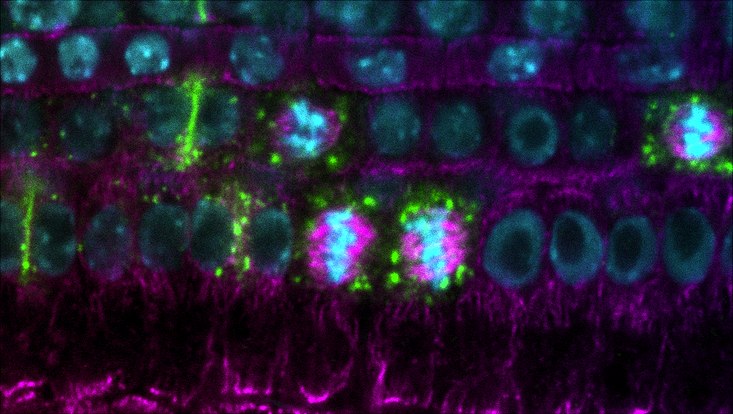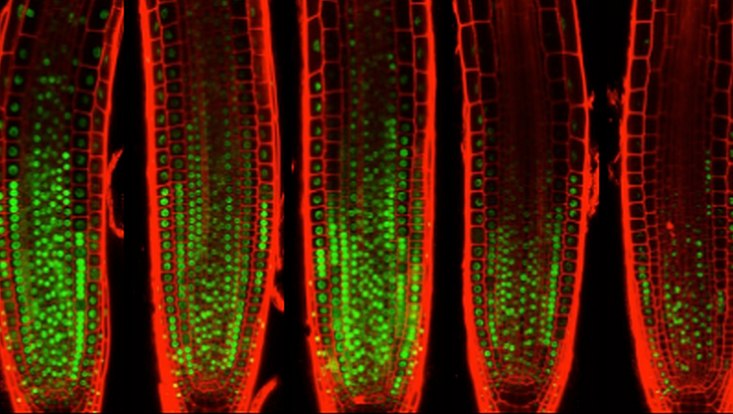B1-type cyclins control microtubule organization during cell division in Arabidopsis
9 December 2021, by Website Team Biologie

Photo: UHH/Belcram
A highly elaborated control system guides cells through mitosis during which sister chromatids are separated and distributed to the newly forming daughter cells. While a wealth of information about the execution of mitosis exists in animals and yeast, information is still scarce in plants.
In animals and yeast, Cyclin-dependent kinase 1 (Cdk1) and its homologs together with B-type cyclins are an essential part of the so-called mitosis promoting factor complex. Flowering plants also contain CDK and cyclin encoding genes, yet in a much larger number than in animals and yeast and most of them have not been characterized to date.
In this publication, we present a functional analysis of the largest class of B-type cyclins in Arabidopsis, that is, the five-member B1 group. We reveal a central role for CYCB1;2 that is backed up by one or more of the other B1-type cyclins in a tissue-dependent manner. Unlike CycB1 mutants in mouse, Arabidopsis cycb1;1 cycb1;2 double mutants are viable, presenting a unique opportunity to study cyclin B function at an organismic level. This allowed us to reveal the organization of mitotic microtubules as the main function of B1-type cyclins in Arabidopsis, a finding supported by in vitro kinase assays that indicated that GIP1/MOZART, a key factor of microtubule organization, is a substrate of CDK-CYCB1 complexes.
After an incredible 20 years these results were finally published in EMBO reports - most likely the longest story of our lab ever. Thanks to all lab members and all collaborators, who did a fantastic job!


